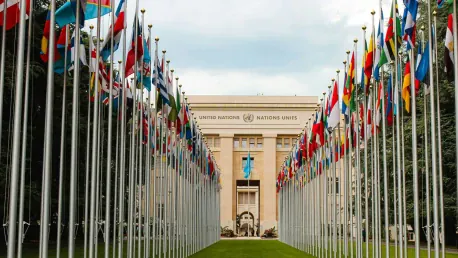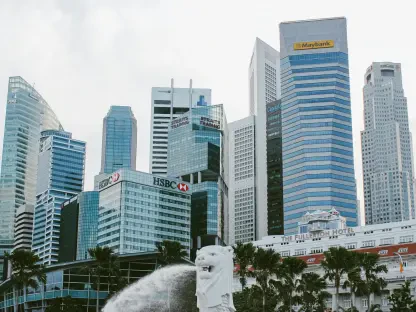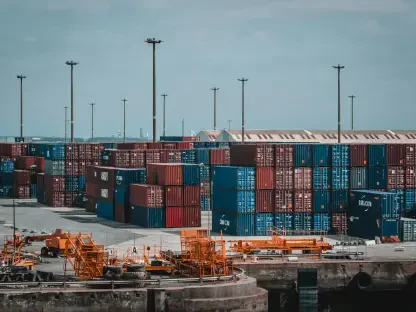India has made a compelling case for urgent reforms in international decision-making structures, particularly calling for the expansion of the UN Security Council to ensure equitable representation for the Global South. During the G20 Foreign Ministers’ meeting, Indian External Affairs Minister S. Jaishankar underscored the pressing need for the United Nations to become a more representative, credible, and effective body. The focal points of the discussion included not only the expansion of both permanent and non-permanent seats on the Security Council but also the broader enhancement of global financial and development institutions. These institutions must evolve to handle contemporary challenges and provide better support to developing nations.
Jaishankar highlighted India’s proactive measures during its G20 chairmanship, especially the establishment of a panel of economic experts tasked with reforming multilateral development banks (MDBs). The panel’s strategic recommendations, such as raising capital and tripling the 2030 lending targets for sustainable development, received robust endorsement from the G20 member countries. This backing signals a widespread acknowledgment of the need for substantial financial reforms to address developmental inequalities and drive sustainable growth. In this endeavor, India has positioned itself at the forefront of advocating for change, leveraging its leadership role to push for more inclusive global governance structures.
Calls for UN Security Council Expansion
The expansion of the United Nations Security Council has been a recurring theme in global governance discussions, and India’s advocacy for this change aims to address significant representational imbalances. By pressing for both permanent and non-permanent seat expansions, India argues that the current structure is outdated and fails to reflect the geopolitical realities of the 21st century. Secretary-General Antonio Guterres has echoed these sentiments, urging greater involvement from the G20 in making the Security Council more inclusive. He emphasized the need to give underrepresented regions like Africa, Asia-Pacific, Latin America, and the Caribbean a stronger voice in international decision-making processes.
Jaishankar’s discourse at the meeting served to spotlight the necessity for the UN Security Council to adapt its framework, ensuring it remains relevant and effective in addressing global challenges. The Indian minister articulated a vision for a more balanced international system where the voices of developing nations are not just heard but also given due weight in crafting global policies. This inclusion, he contends, will not only make the UN more credible but will also strengthen its capacity to act decisively on issues ranging from conflict resolution to climate action. The push for expanding the Security Council is thus part of a larger strategy to reform international institutions, making them more democratic and responsive to the needs of all nations.
Reforming Global Financial and Trade Systems
Jaishankar also drew attention to the urgent need for comprehensive reform of the World Trade Organization (WTO) to foster a fair and rules-based trading system. He argued that prevalent protectionist policies and market-distorting practices have created significant hurdles for developing countries seeking to participate equitably in global trade. By advocating for a reformed WTO that prioritizes non-discrimination and fairness, India aims to dismantle barriers that hinder the economic progress of developing nations. This approach aligns with the broader goals of the G20, United Nations, and Bretton Woods institutions like the International Monetary Fund (IMF) and the World Bank, which collectively aim to tackle global issues such as inequality, developmental financing, the climate crisis, and the impacts of technology.
Jaishankar’s call for a rules-based trading system is a clarion call for the restructuring of global economic governance to more accurately reflect contemporary economic dynamics. Highlighting India’s initiatives, he underscored the establishment of a panel of economic experts focused on reforming multilateral development banks. Recommendations from this panel, such as raising capital and tripling 2030 lending for sustainable development, gained unanimous support within the G20. This endorsement underscores the shared understanding that the present global financial architecture is ill-equipped to address the needs of emerging economies. By pushing for these reforms, India seeks to create an environment where financial resources are more effectively mobilized for sustainable growth and equitable development.
Sustainable Development and Energy Transition
India has made a strong case for immediate reforms in international decision-making bodies, particularly advocating for the expansion of the UN Security Council to guarantee fair representation for the Global South. At the G20 Foreign Ministers’ meeting, Indian External Affairs Minister S. Jaishankar emphasized the urgent need for the United Nations to become more inclusive, credible, and efficient. Key discussion points included expanding both permanent and non-permanent seats on the Security Council and enhancing global financial and development institutions. These entities must adapt to contemporary challenges and offer better assistance to developing nations.
Jaishankar spotlighted India’s proactive efforts during its G20 chairmanship, notably the creation of a panel of economic experts focused on reforming multilateral development banks (MDBs). The panel’s strategic proposals, such as increasing capital and tripling 2030 lending targets for sustainable development, received strong backing from G20 members. This support reflects a broad consensus on the need for significant financial reforms to tackle developmental inequalities and promote sustainable growth. Through these initiatives, India has positioned itself as a leader advocating for more inclusive global governance.









